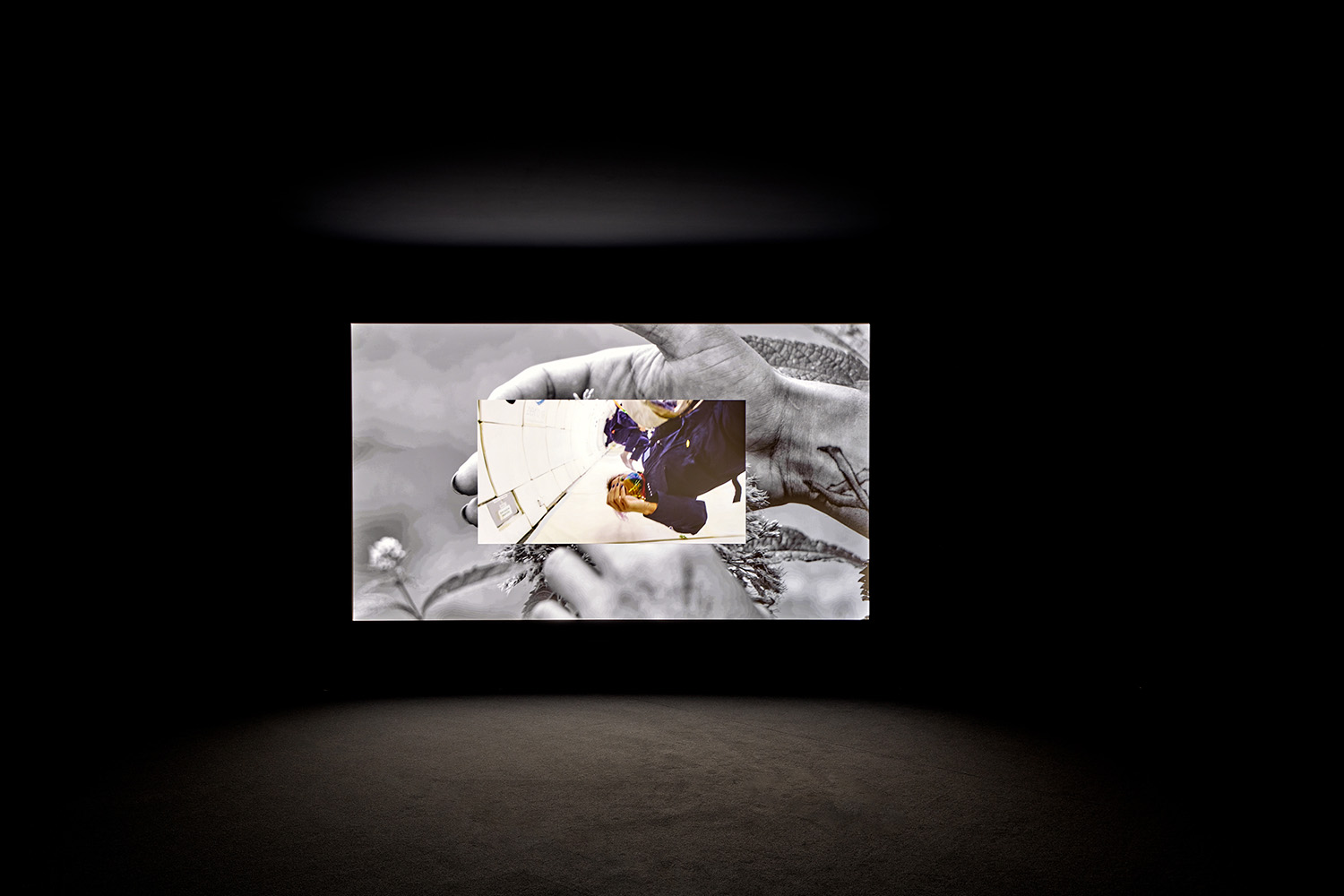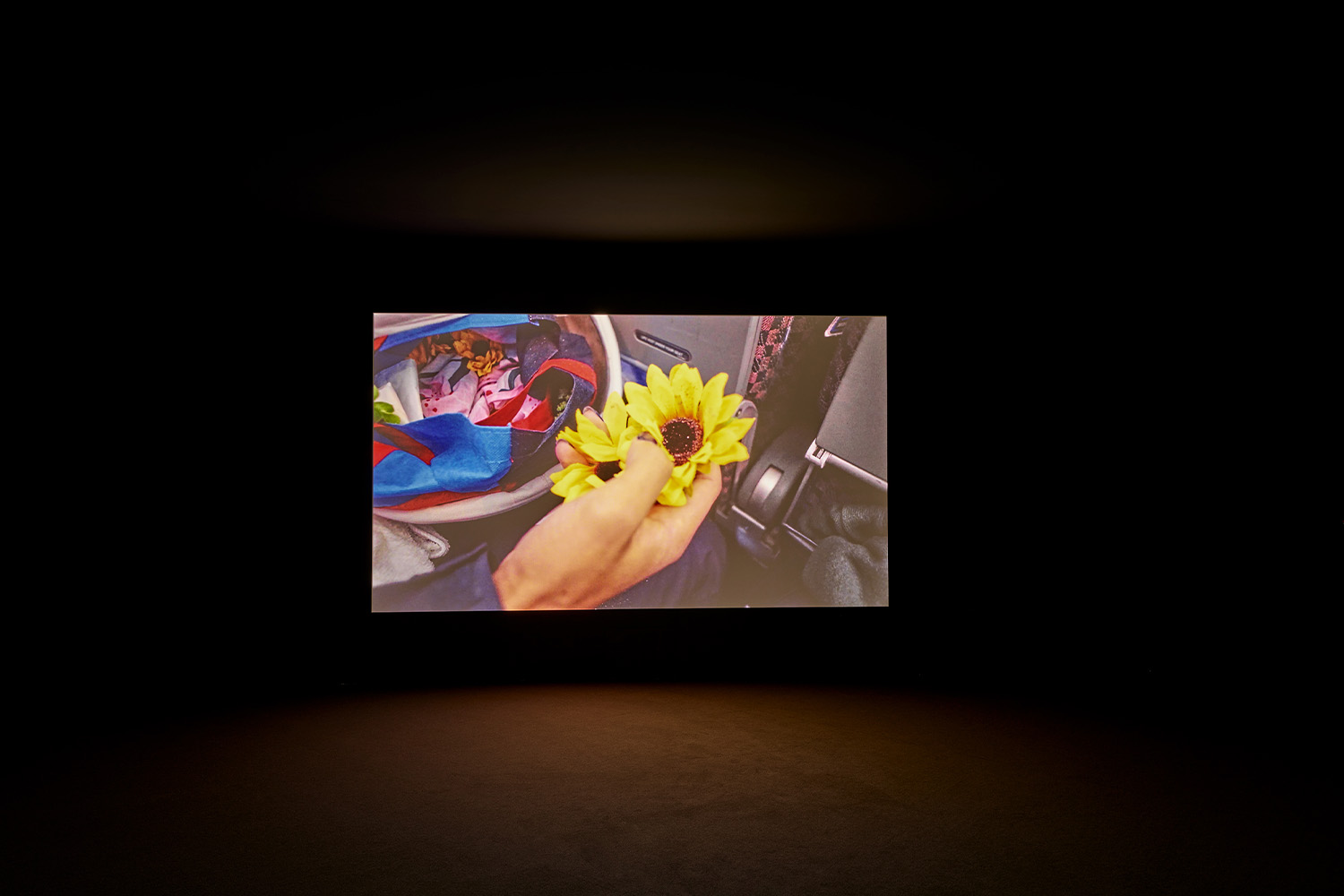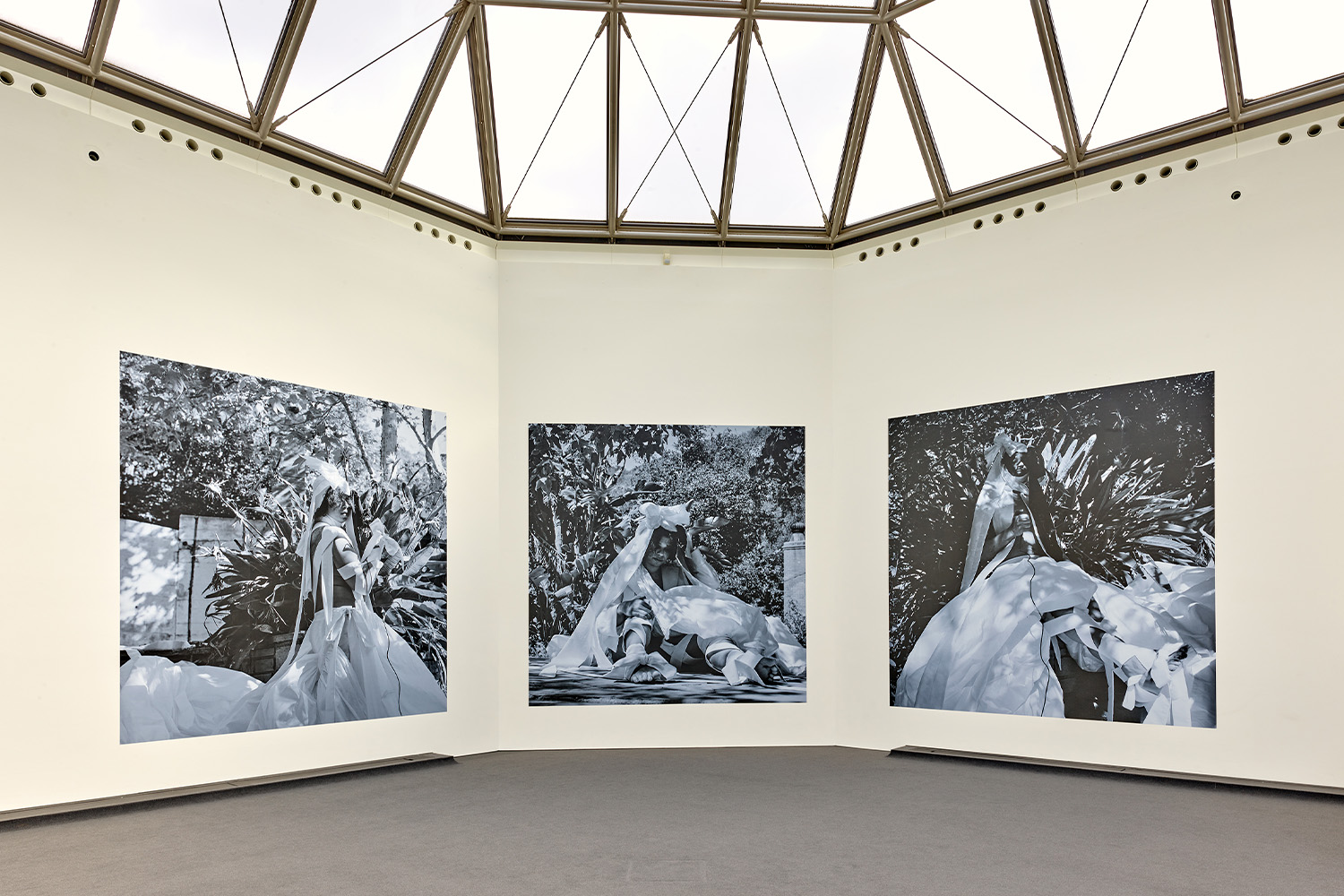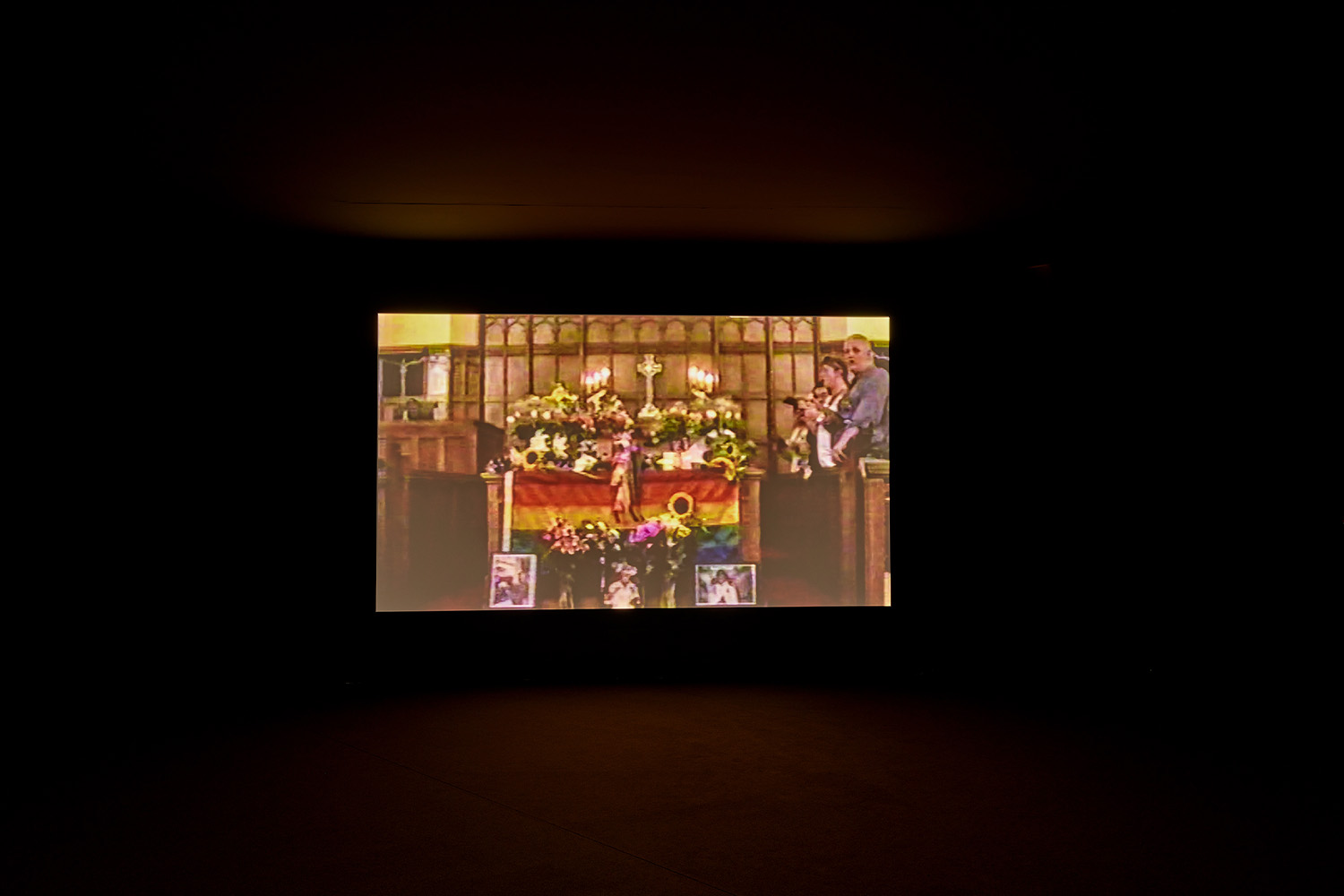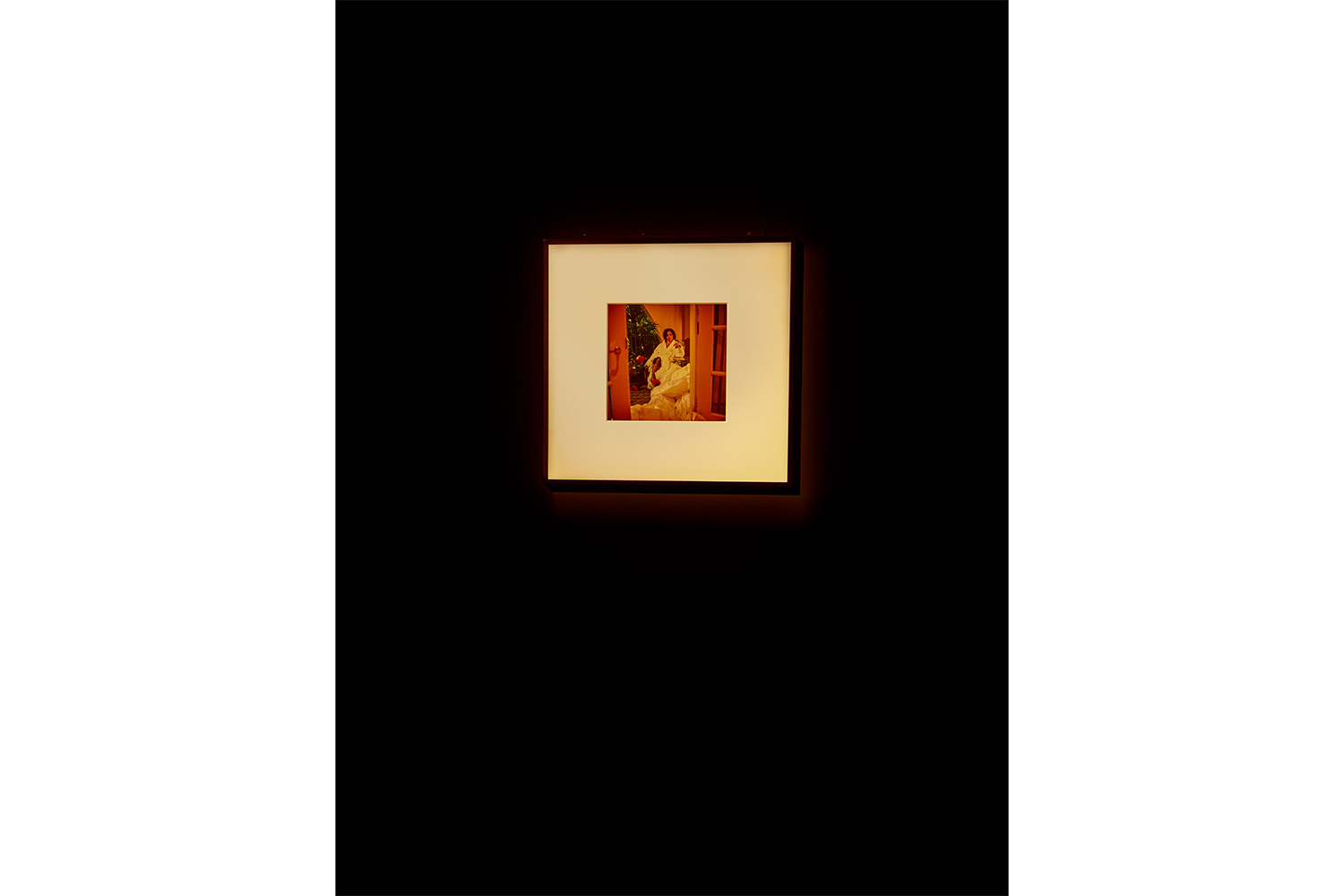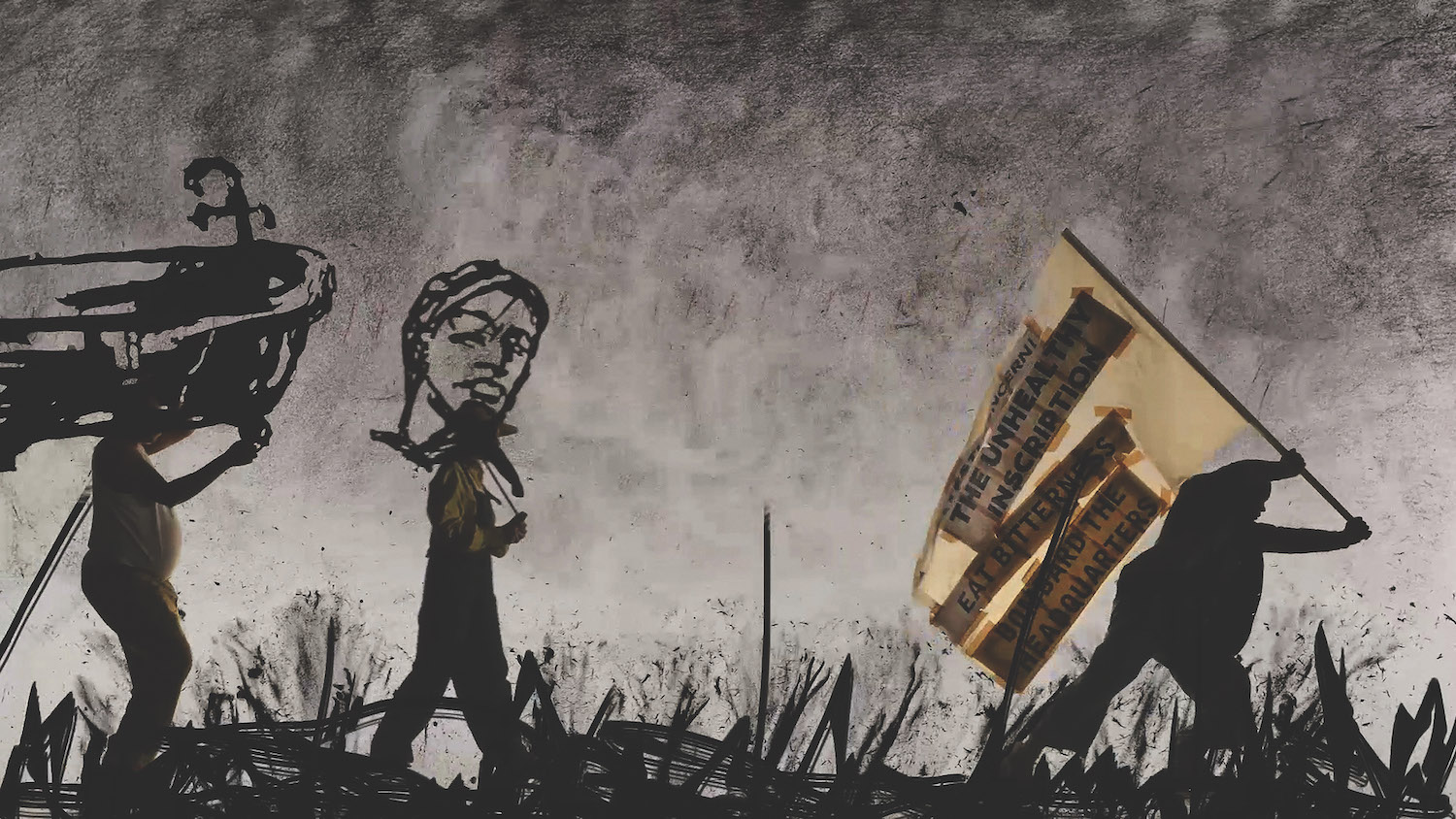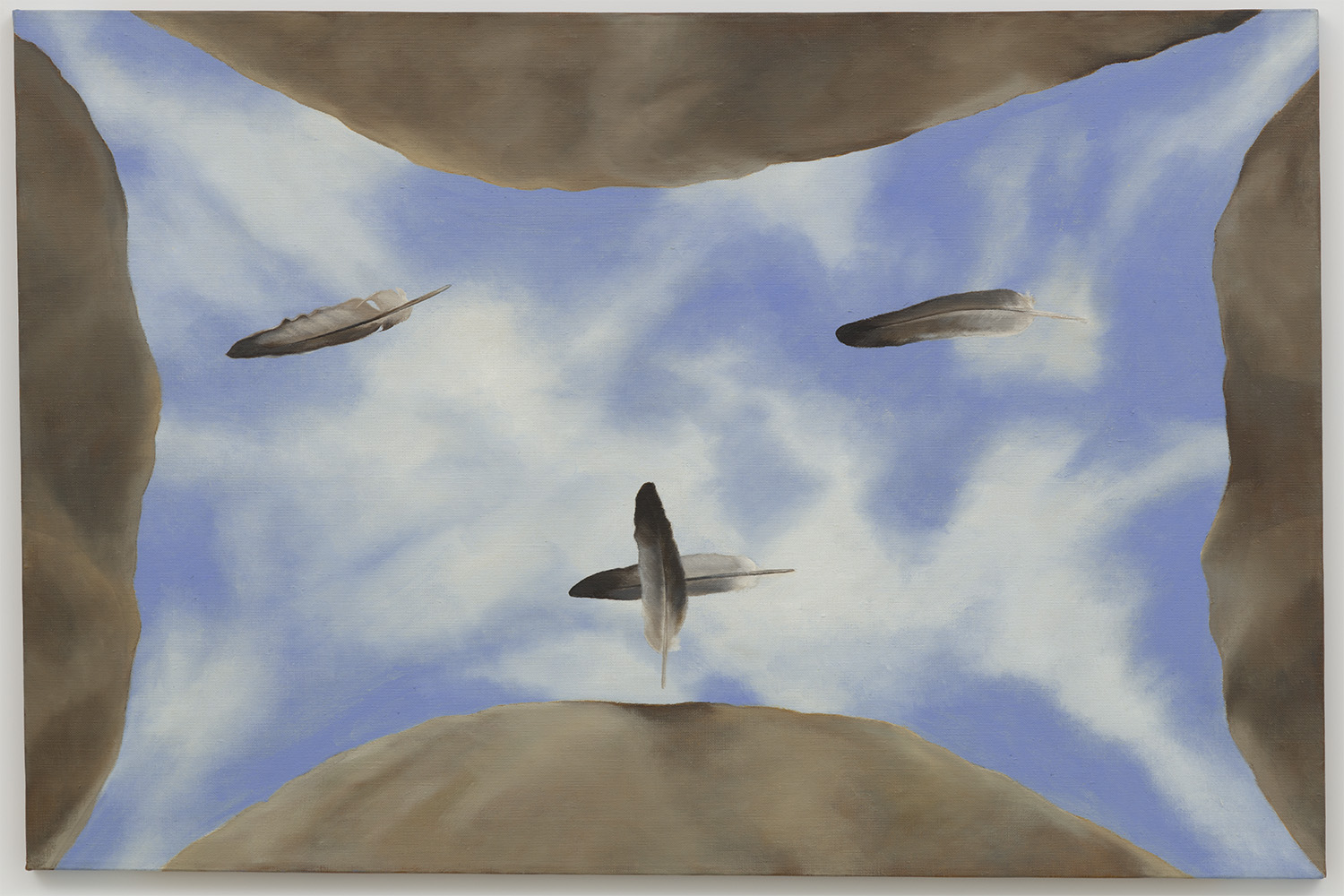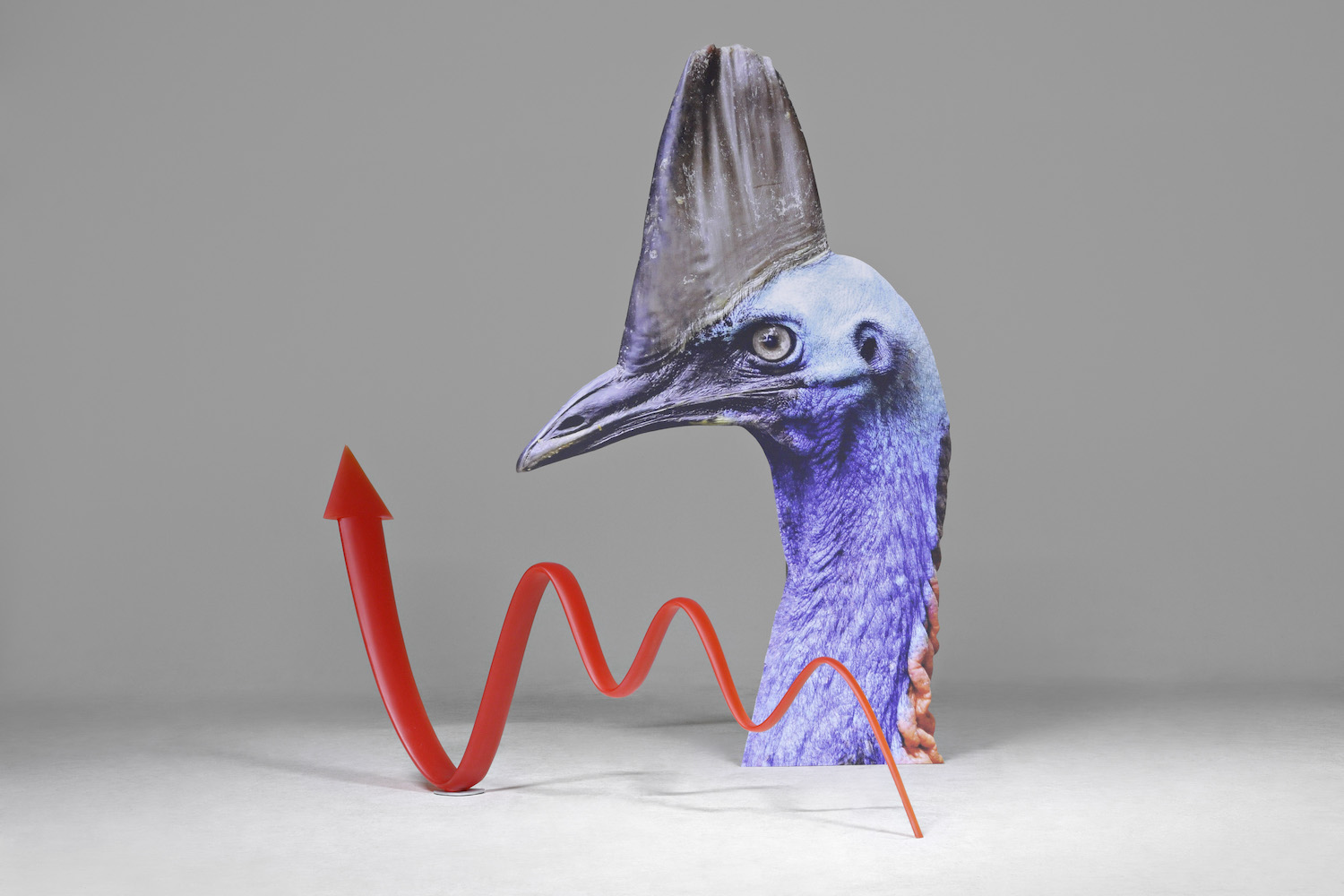“Pleasure and Pollinator” is the first solo presentation of Tourmaline’s work in Europe, hosted by MUDAM, centred around the video Pollinator (2022).Tourmaline is an artist, writer and transgender activist whose video and photographs create elaborately staged scenes honouring living and historical figures of LGBTQIA+ movements and queer culture. In reflecting on their contemporary legacy, she draws on the notion of ‘critical fabulation’ as developed by scholar Saidiya Hartman. Accordingly, Tourmaline’s work is nourished by historical research, critical theory and fiction to show how erasure and amnesia have marked the writing of a hegemonic historical canon. Tourmaline uses found footage and archival material in her films for their empowering potential: giving political agency to those affected by the afterlife of slavery and tracing an imagined genealogy of Black queer figures, of which Tourmaline is an integral part.
Printed in larger-than-life scale, these black-and-white self-portraits are marked by a sensual and meditative atmosphere: we see Tourmaline sitting pensively on the ground, her flowy costume echoing the voluminous tree behind her. In most photographs, she stands majestically in a garden, while in others, she is almost camouflaged amidst the large swaths of her dress’ white fabric and plant leaves. Evoking the relations between nature and ornament, but also the representation and visibility of queer and Black bodies, this series pursues the artist’s explorations of the history of ‘pleasure gardens’, that emerged in the United States in the early 1800s. While these places were categorised as ‘white-only’ (to quote racist advertisements of the time), a few were Black-owned and stood as havens of leisure and resistance. Tourmaline reactualises the idea of pleasure by embracing her own image within luscious gardens. The photographs are marked by a spectral atmosphere, with Tourmaline radiating an otherworldly presence – an aspect accentuated by the haunting soundtrack broadcast in the space.
The film Pollinator opens up like an ‘upward spiral,’ to quote the artist. It begins with shots of Tourmaline walking through the Brooklyn Botanic Garden and the Edwardian period rooms at the Brooklyn Museum. These are interspersed with archival footage of the memorial of Marsha ‘Pay It
No Mind’ Johnson , a performer and figure of the Stonewall uprising for gay rights in 1969 who co-founded Street Transvestite Action Revolutionaries (STAR) with Sylvia Rivera. A cult figure for the queer community in New York, Marsha P. Johnson appears as the central subject in two other films by Tourmaline: Lost in the Music (2017) and Happy Birthday, Marsha! (2018), both co-directed with Sasha Wortzel.
Here, Johnson’s legacy is evoked less through the lens of a narrative progression than as a poetic metaphor. Tourmaline wanders in the garden and brushes against the plants, acting as a ‘pollinator’ by carrying matter on her clothes. These scenes are interlaced with home videos shot by the artist that show her father singing, laughing and smoking, as well as interviews with friends of Johnson, one of which holds a picture of her smiling. These images are deftly woven in an intricate montage that repeats one leitmotiv: the flower, which appears first on Tourmaline’s headdress, then on Johnson’s flower-crown, and later is seen floating in the Hudson River during Johnson’s memorial. While centring grief, this montage acts as a joyful reminder that Johnson was a nurturing figure for gender non-conforming and trans people in New York: she was, metaphorically speaking, a ‘pollinator’. Evoking queer grief, Tourmaline’s work nevertheless privileges a celebratory perspective that connects historical queer figures with contemporary Black transgender communities – an approach that recalls what historian Robin D.G. Kelley defines as ‘freedom dreaming’.

